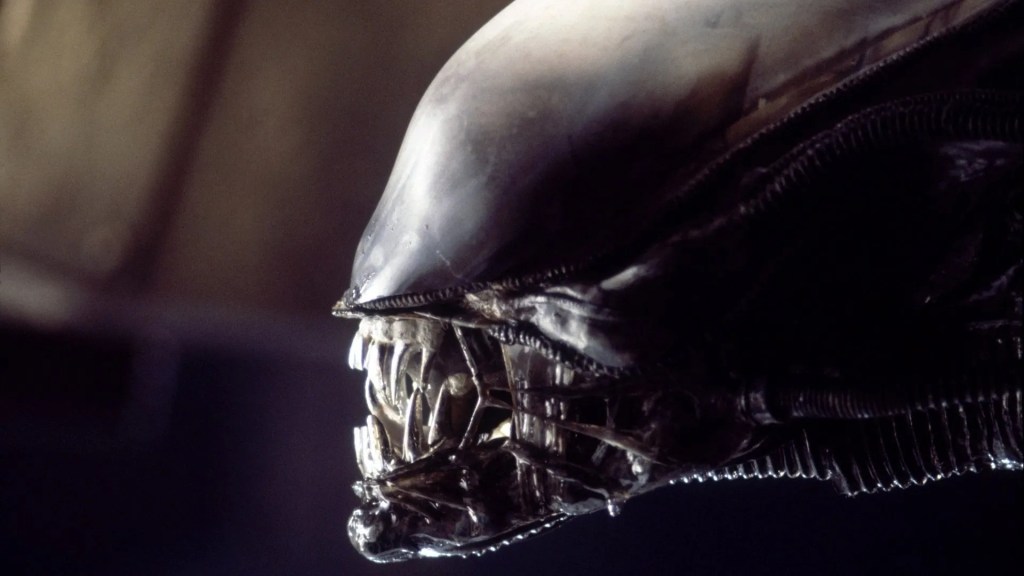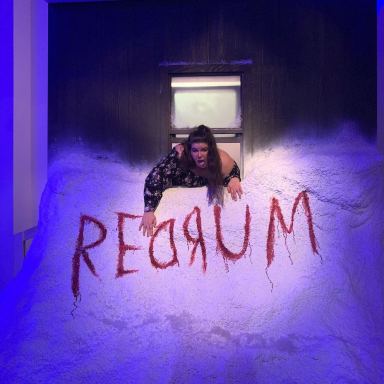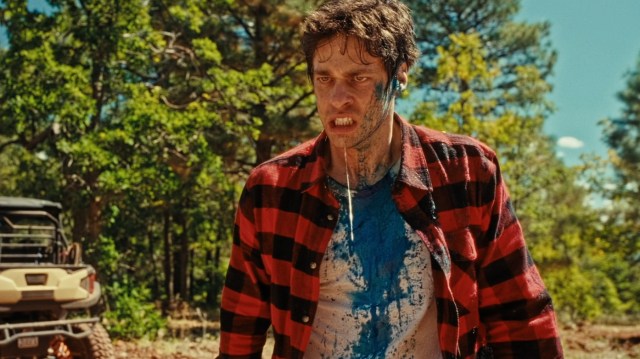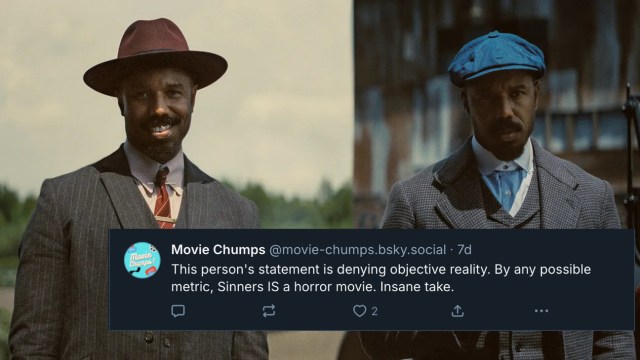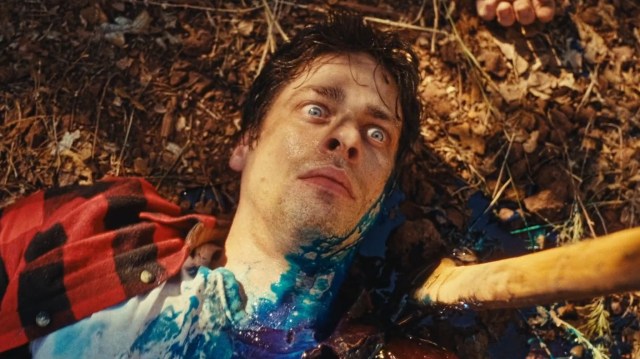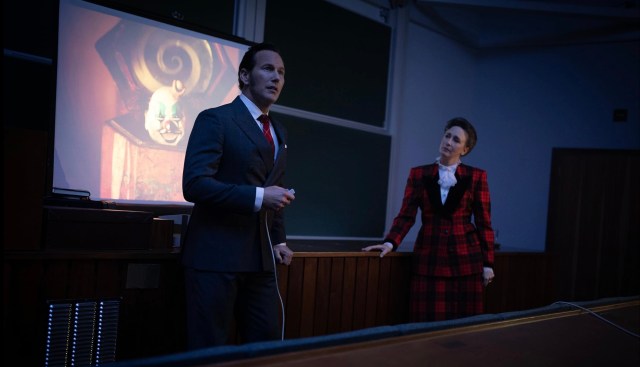Fear of the unknown is essential to all horror, and there is nothing we know less about than the infinitely dark and cold expanses of the universe beyond Earth.
Table of Contents
Helplessness is at the core of all terror, and there is nothing more possibly helpless than being stranded endless light years from home either on a malfunctioning ship or at the mercy of a murderous space monster or parasite.
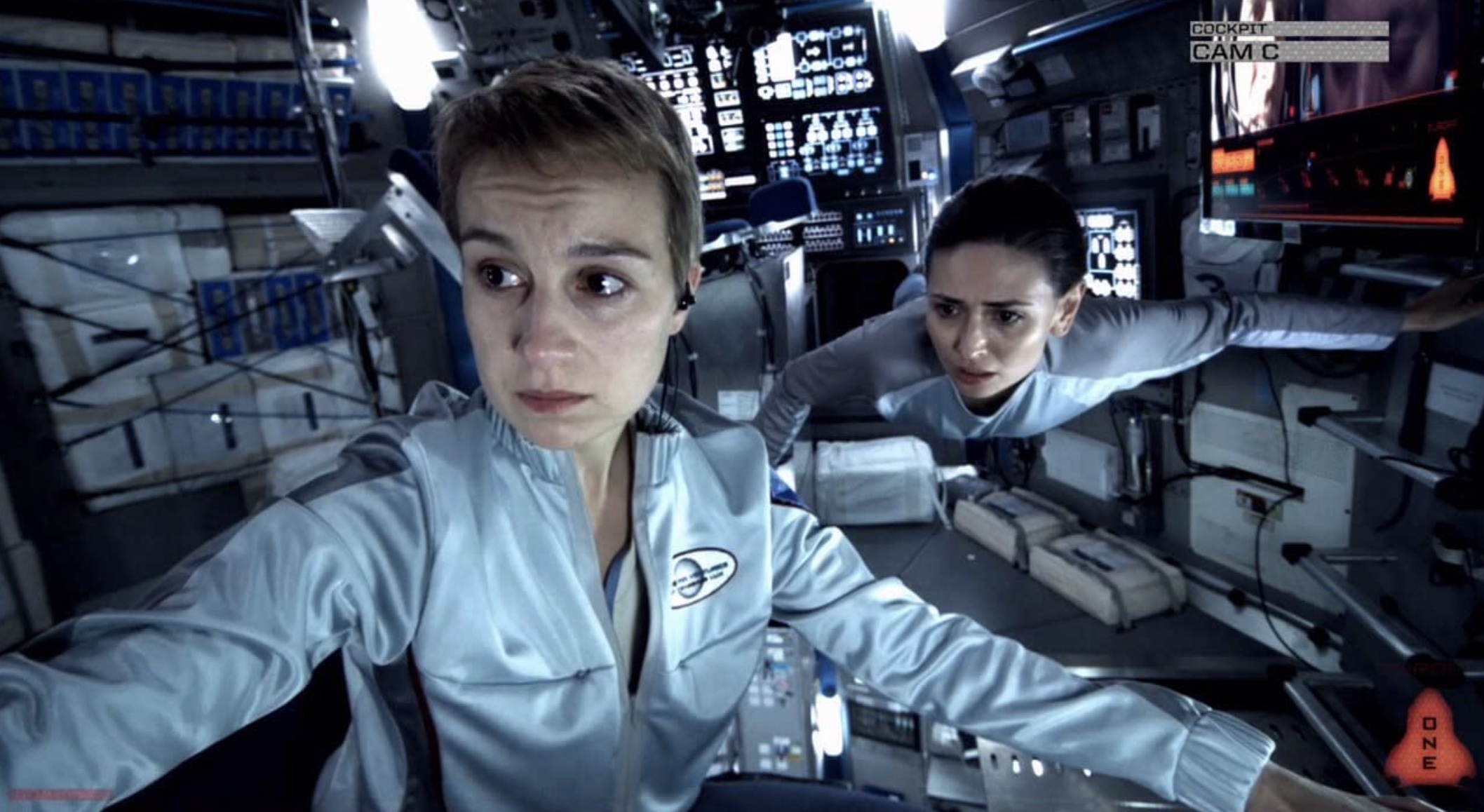
Many horror movies thrive on isolation and claustrophobia, and what makes space horror so much more compelling is that you’re suffocated inside a cramped and tiny spaceship in the midst of more space than the human mind is capable of conceiving. There’s a cruel paradox there—the vast and endless patches of darkness surrounding the spaceship make it feel that much more like a coffin.
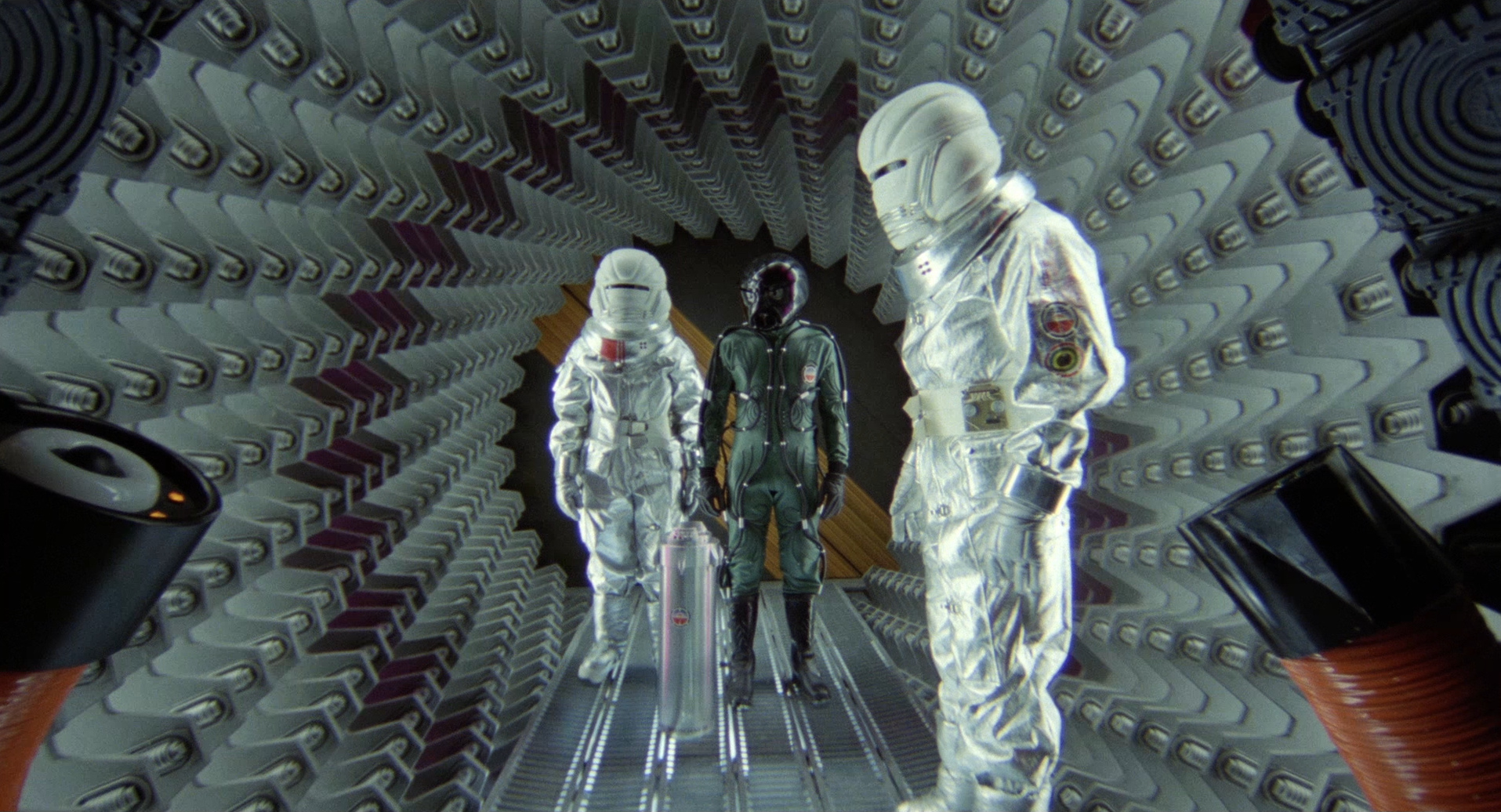
What was known as the “Space Race” between the United States and the communist Soviet Union mostly took place between the late 1950s and the mid-1970s, during a time when space travel and astronauts occupied much more of the popular imagination than they currently do. Although landmark films such as 1968’s 2001: A Space Odyssey popularized the innate terror of having things go helplessly awry while you’re drifting listlessly among the stars, space terror was also the central theme in rock and roll hits of the era such as David Bowie’s “Space Oddity” (1969) and Elton John’s “Rocket Man” (1972).
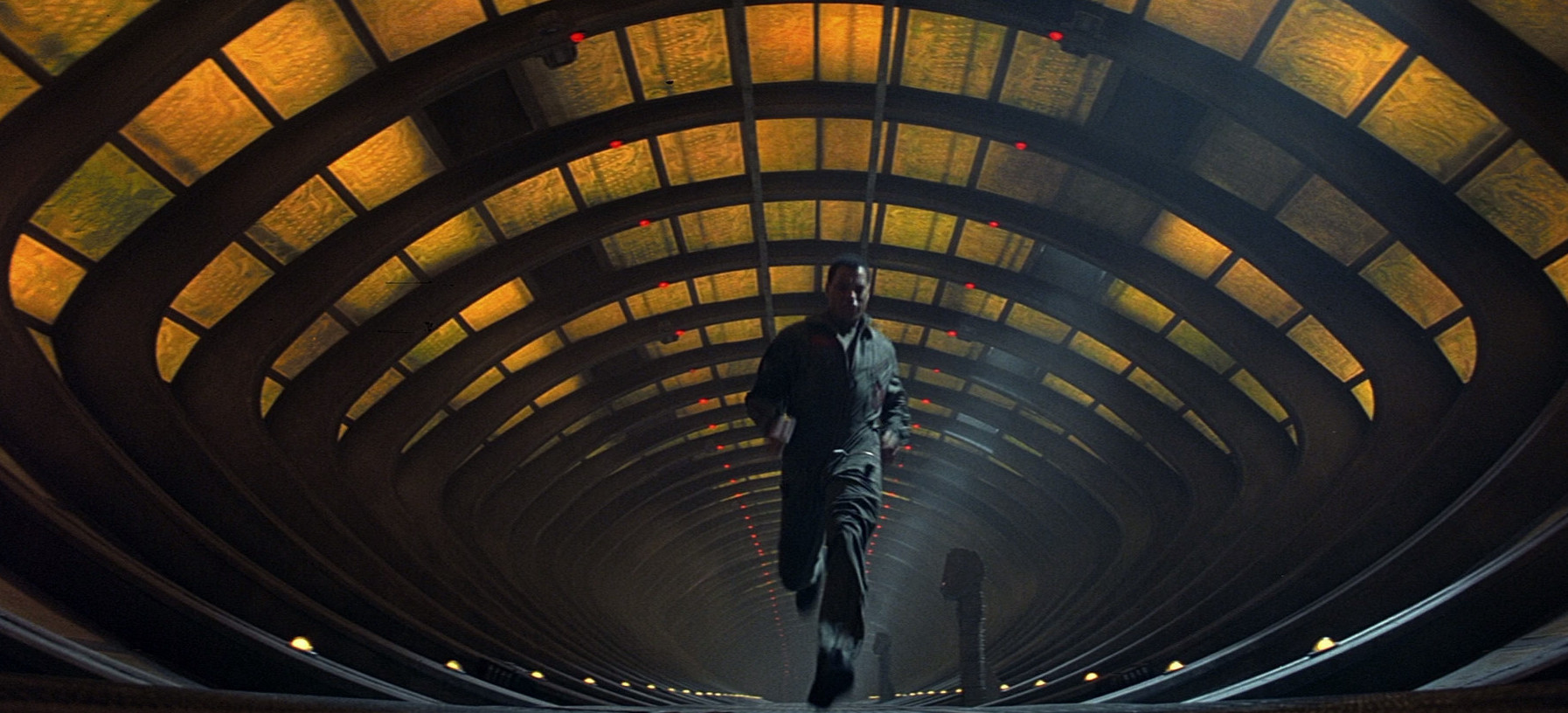
Here are 25 films that exemplify the boundlessly claustrophobic anxiety of space horror, a nightmare that none of us has ever known but yet all of us are somehow able to imagine.
Old Space Horror Movies
Planet Of The Vampires (1965)
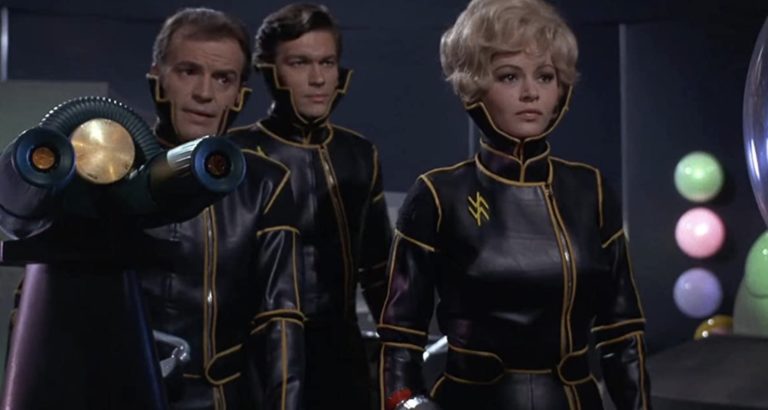
Italian director Mario Bava, who would go on to claim his greatest fame in giallo horror movies, helmed this tale of two spaceships that land one shortly after the other on a remote planet named Aura, only to realize the planet harbors some parasitic life form that forces everyone who’s exposed to it to fight one another to death. Released in Italy as Terrore nello spazio (Terror in Space), the film went through fifteen working titles before American International Pictures decided on Planet of the Vampires; among the alternate titles were Demon Planet, The Haunted Planet, The Haunted World, The Outlawed Planet, Planet of Blood, The Planet of Terror, and Space Mutants. The Bloody Pit of Horror praised Bava’s deftness at creating a visually striking alternate universe on a shoestring: “Aura is a dark, desolate, densely misty place with bubbling pits, flashes of red, green and blue lights illuminating the sky and all kinds of strange rock formations off in the horizon. Bava’s ability to use lighting and optical effects to give this low-budget production a grander feel than it otherwise would have had is highly impressive.”
Alien (1979)
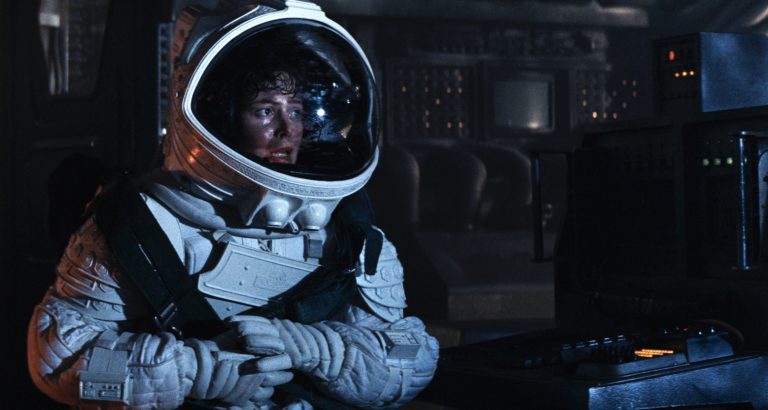
The most iconic of all the space horror movies as well as the most influential, Alien was produced in the late 1970s after the unexpected blockbuster success of Star Wars made Hollywood more receptive to films involving space travel. The plot involves members of a space crew who discover an abandoned spaceship and decide to explore inside, where they find a chamber containing thousands of eggs. When one of the team members approaches an egg, a parasite inside it attacks him. Hours later, in what would become the film’s most memorable scene, a more fully formed version of the parasite bursts forth from the man’s chest, killing him as it escapes. Most of the movie involves the thudding claustrophobia of being trapped deep in space inside a ship where a terrifying alien life form threatens to kill everything onboard.
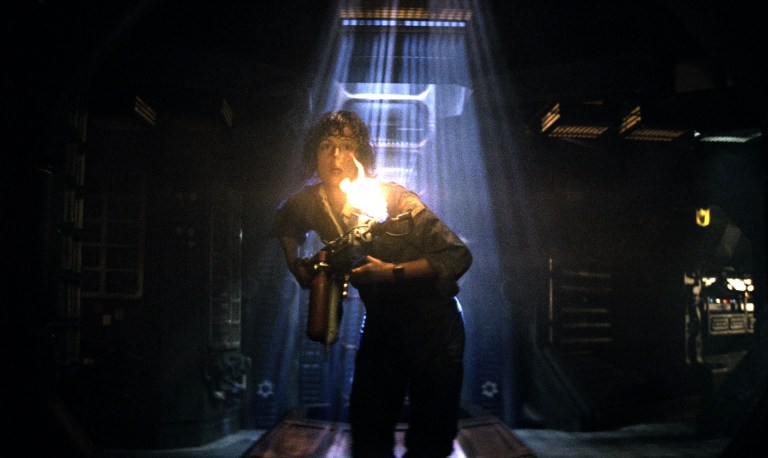
Reel Views writes, “The film’s memorable tag line, ‘In space, no one can hear you scream’ promised a far different experience than the popcorn entertainment of Star Wars or the kinder, gentler saga of Close Encounters of the Third Kind. In fact, Alien was as much horror as it was science fiction….Alien is about shocks and chills and thrills, not space battles. Where Star Wars has light sabers and blasters, Alien has intense atmosphere.”
Saturn 3 (1980)
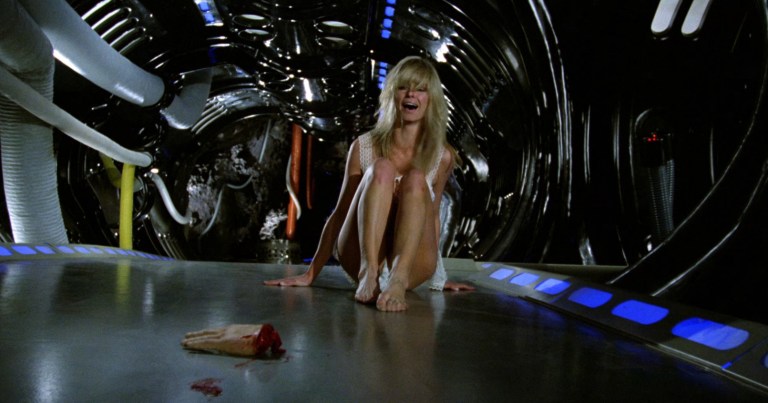
Legendary Hollywood actor Kirk Douglas stars as Major Adam, who along with his lover, a scientist named Alex (Farrah Fawcett) is stranded on a remote space station in the asteroid fields of Saturn when suddenly one day they are visited by a sociopathic and sexually deviant earthling named Captain Benson (Harvey Keitel), who arrives with an eight-foot-tall robot named Hector and soon sets his sexually predatory eyes on Alex. Saturn 3 was widely panned by critics and received three Golden Raspberry nominations—for Worst Picture, Worst Actor, and Worst Actress.
Galaxy Of Terror (1981)
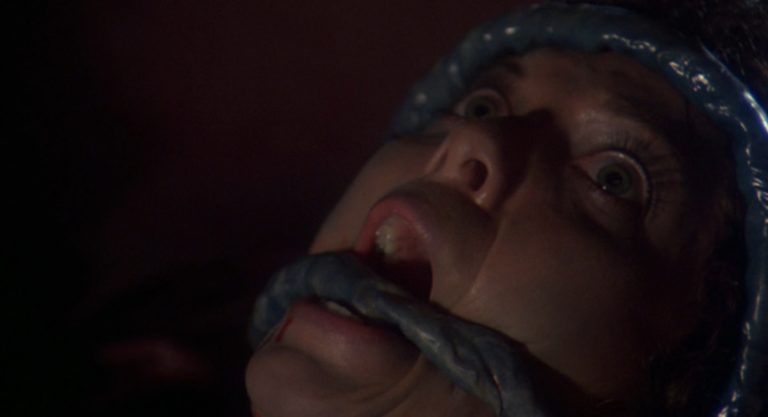
This is legendary exploitation producer Roger Corman’s attempt to capitalize on the runaway success of Alien two years earlier. It stars horror stalwarts such as Robert Englund and Sid Haig as well as 70s sitcom star Erin Moran, AKA Joanie Cunningham from Happy Days. The plot involves a hapless space crew whose craft wanders too close to an alien pyramid which has the ability to discern and then exploit people’s ultimate fears in order to terrorize and kill them. The film was originally rated X for extreme violence that included evisceration and a scene where a topless blonde woman gets raped by a thousand-pound maggot. Eat My Brains writes, “The production design in Galaxy of Terror is impressively ambitious, and it comes off well thanks to James Cameron’s sterling efforts. Heck, even the walls seem to have veins running through them—perfect for an alien environment that preys on your fears and demons by making you face them. Good concept, lush visuals, some nice set pieces, good gore, and a red glowy faced man known as ‘the Mentor’. Enjoyably silly fun.”
Forbidden World (1982)
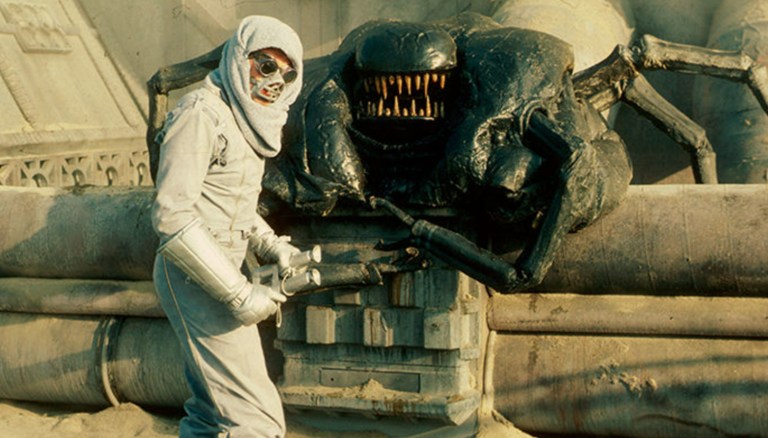
Producer Roger Corman used the same sets that James Cameron had designed for 1981’s Galaxy of Terror for this space-horror film about an elite group of researchers who are studying an experimental life form called “Subject 20” on the planet Xarbia in an attempt to solve the global food crisis back on Earth. Subject 20, however, would rather eat humans for food than be eaten by humans for food. According to legend, one audience member found the film so preposterous during a screening that he laughed out loud, leading Roger Corman to smack him in the face. As Corman left the theater, the man he’d smacked poured soda all over his head from the balcony. Blood Brothers Films writes, “Forbidden World is a BAD Alien rip-off but unlike many other BAD Alien rip-offs (cough cough Star Crystal!) Forbidden World manages to entertain by being schlocky fun. The characters are one dimensional, the acting is bad, and so is the script. Yet all this badness mixed with 80’s new wave still kept me glued to the screen. I am embarrassed to say but I actually had a good time with Forbidden World.” The film was also released as Mutant.
The Dark Side of the Moon (1990)
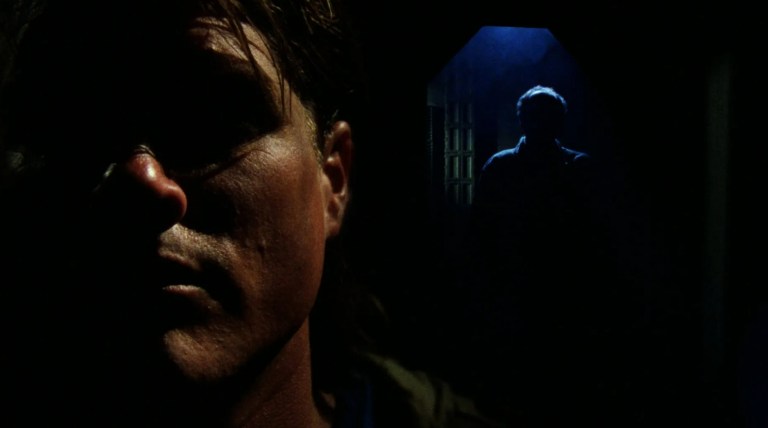
Not to be mistaken for the 1973 Pink Floyd album that sold over 30 million copies and lingered on the record charts longer than any other album in history, this space horror is set in the year 2022, when a repair crew’s spaceship malfunctions and sends their craft gravitating toward the dark side of the moon, where a seemingly abandoned spaceship lies in wait. Apparently the dark side of the moon is also inextricably linked with the Bermuda Triangle and Satan himself. The Horror Guys write, “I think the filmmakers liked ‘Alien’ a lot, and they obviously borrowed as much as they could from it. The atmosphere of the ship, the small crew that we take time to know, the chest-bursting, the computer who has its own room and personality, the flashing strobe warnings, the airlock, and lots of other similarities persist. Still, there’s no ‘Alien’ here— instead, it’s the Devil himself!” Originally shot under the title Spacecore.
Leprechaun 4: In Space (1996)
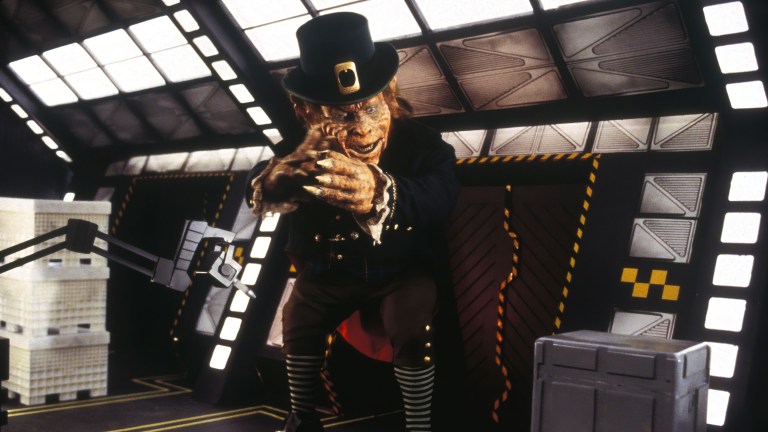
Originally intended as a spoof of 1995’s Apollo 13, this fourth installment in the Leprechaun series has the power-mad title creature—who is never referred to as a Leprechaun, only an “alien,” a “monster,” or even a “bastard”—kidnapping Princess Marina and holding her hostage as part of his evil plot to rule the universe, and only a slapstick-prone group of “space marines” from Earth can stop him. Mondo Bizarro Cinema said that the film’s low budget and general cheesiness was its strength: “Yes, it is bad. Yes, it is ridiculous. Yes, it is a Horror film somehow turned into a Science-Fiction Comedy (that is not self-aware). I know. For crying out loud, it is called Leprechaun 4: In Space! If they wanted you to take it seriously, then they were possibly the dumbest people in History! So yeah, this film is utterly ridiculous and I love it for it.”
Event Horizon (1997)
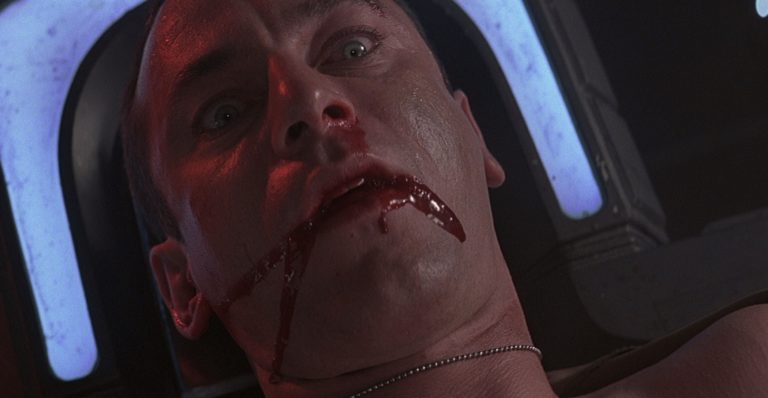
In the year 2047, a crew of astronauts is sent on a mercy mission to find out what happened to the spaceship Event Horizon when it disappeared somewhere near Neptune nearly seven years earlier. As the crew of the Lewis and Clark approach the abandoned craft, their sensors indicate that the temperature aboard is extremely cold, and although there are no signs of human life, there is a mysterious form of life that permeates the abandoned hulk of a spaceship. It turns out that Event Horizon had used an experimental engine that opened a tear in the space-time continuum, allowing all sorts of horrific monsters to infest it. Laurence Fishburne, Sam Neill, Jason Isaacs, and Joely Richardson star as the astronauts who don’t realize the level of danger they are facing until it is already far too late.
New Space Horror Movies
Jason X (2001)

In 2008, Jason Voorhees from the Friday the 13th series is taken from a government facility in Camp Crystal Lake, cryogenically frozen, and transported into outer space in the year 2455 after the earth becomes uninhabitable. Immediately after he gets thawed out onboard, he begins stalking and killing the crew members of the spaceship that are transporting him between the dead planet Earth and a replacement planet known as Earth II. There’s quite a bit of extreme violence in this odd fusion of classic 1980s slasher tropes and space horror.
Sunshine (2007)
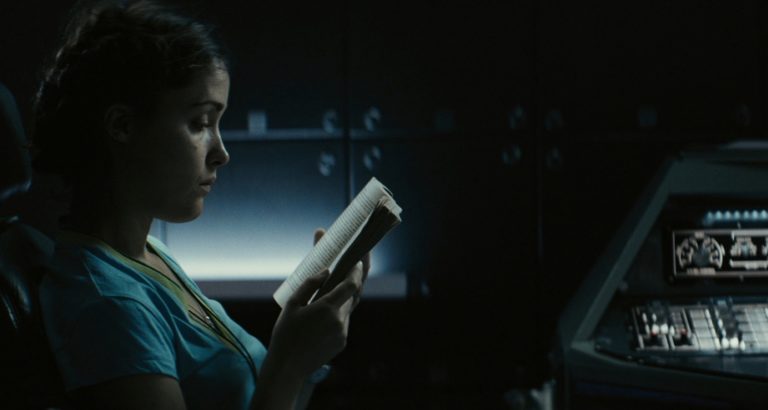
The film is set 35 years in the future, when the sun is dying, Earth is entering another Ice Age, and a group of international astronauts on a ship called Icarus II is sent on a mission to revive the dying sun with a nuclear fission bomb. The first Icarus had disappeared a few years earlier without a trace, but as Icarus II reaches the far side of Mercury, they start receiving distress signals from Icarus. When it becomes clear that Icarus II’s mission is doomed—or at least that everyone on the ship is doomed, because the success of their mission depends on their ship getting blasted to pieces by the nuclear bomb as it revives the sun—the film turns into a morbid philosophical treatise on the nature of life and death.
Pandorum (2009)
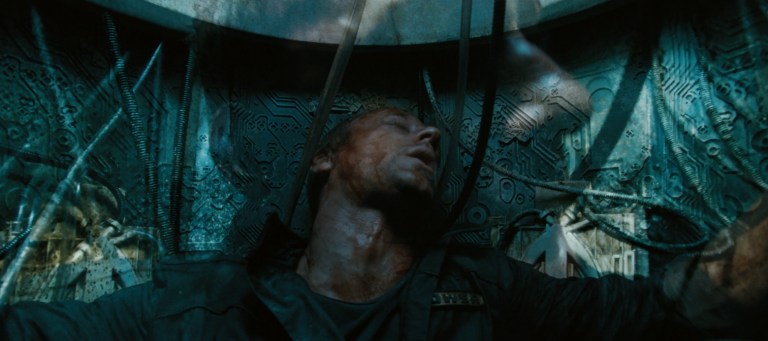
The term “pandorum” refers to a fictional condition that exists only in this movie. It is a psychotic break that takes place between ship’s captains when they get the sense that their mission is doomed, leading into a spiral of psychosis and paranoia. This film is set in 2174, when the planet’s resources have been depleted and a spaceship known as the Elysium has been launched toward the planet Tanis in the hopes that the last remnants of humanity can be preserved. En route, two crew members wake up dazed from hypersleep and realize that all of their colleagues are gone—but to their horror, they are not alone.
Europa Report (2013)
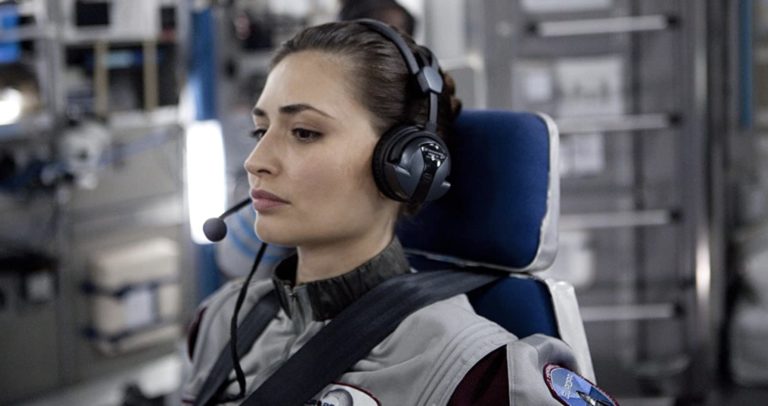
A genre blend of found-footage thriller and low-budget sci-fi film, Europa Report follows a crew of astronauts’ privately funded mission—this is a post-NASA future where private corporations rather than the government control space travel—to find life on Europa, which is Jupiter’s fourth-largest moon. Much of the story is told in retrospect as a sort of “black box record” of events after they’ve happened, spliced with comments from a reporter on Earth who remembers the infamous moment when the video feed from Europa One went dark.
Life (2017)
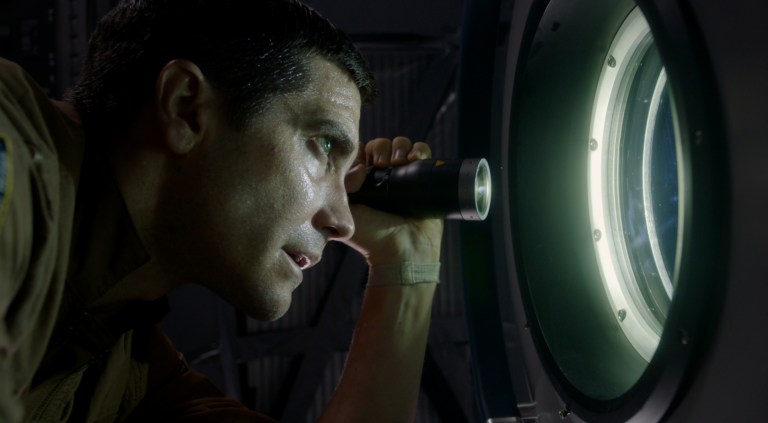
A half-dozen astronauts on the International Space Station receive some soil samples from Mars that they discover contain a large single-celled organism that is not only unlike anything they’ve ever seen on Earth, it’s the first sign of life ever encountered beyond Earth. During one experiment, the organism attacks scientists and escapes inside the ship through an internal air vent. To their horror, the astronauts realize that this life form killed all organisms on Mars and is now in the process of wiping out all life on Earth. Reel Views writes that “for a majority of its running length, Life is an Alien clone. The similarities are so strong that they’re impossible to ignore. However, while Ridley Scott’s 1979 classic has provided a template for countless films over the nearly 40 years since its unveiling, few have been as effective as Daniel Espinosa’s version….Even by sci-fi/horror standards, this is dark, gruesome, intense stuff. Not for the faint of heart or those who crave happy endings.”
High Life (2018)
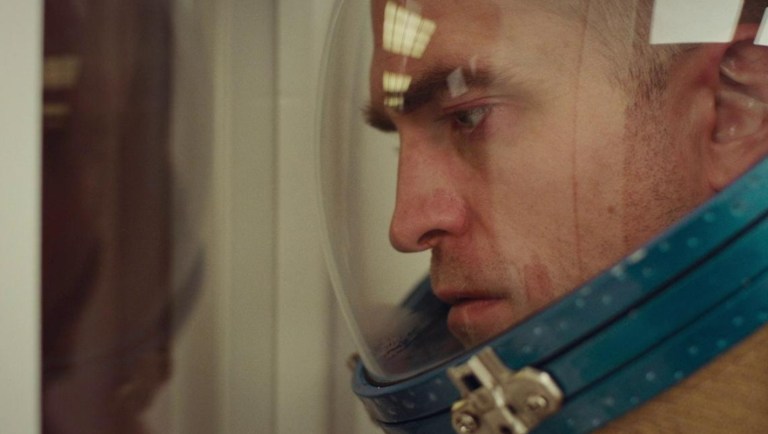
Deep in space outside of the solar system, a father and his daughter live in complete isolation onboard a spaceship years after the rest of the crew died. Director Claire Denis said: “The film is about sexuality, not sex. Sensuality, not pornography….The film shows many taboos – about our own bodies, the taboos of intimacy, and the taboo around, of course, incest. It’s a taboo, but it exists.” UK Film Review writes, “In tackling the final frontier, it’s not surprising that unconventional filmmaker Claire Denis shows little interest in the usual themes that dominate the sci-fi genre. High Life floats very deliberately in its own headspace, touching down somewhere between enlightened consciousness and acid-blooded killing machines.”
Additional Space Horror Movies
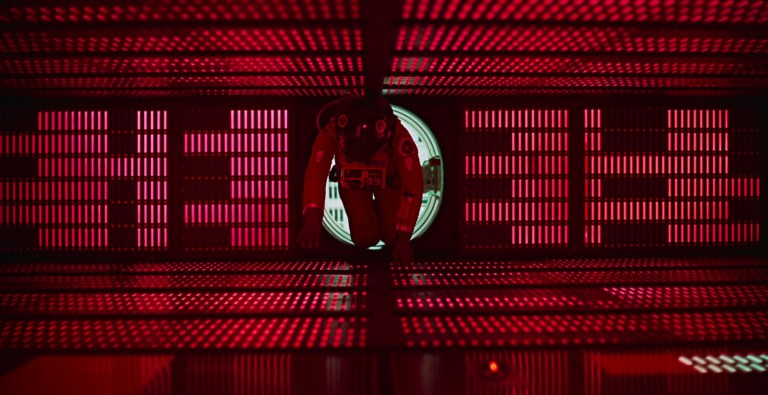
- It!: The Terror From Beyond Space (1958) a ship is sent out to rescue the sole survivor of a previous space mission, who tells them that a Martian monster killed all of his crew mates. But the terror didn’t end there…
- 2001: A Space Odyssey (1968) Machine turns against man in Stanley Kubrick’s masterful tale of a spaceship’s computer that starts killing the astronauts onboard.
- Solaris (1972) a psychologist is sent out to a remote space station to research exactly why all the crew members lost their minds.
- Dark Star (1974) things go from bad to worse for a crew in their 20th year of a long-term space mission.
- Aliens (1986) In James Cameron’s sequel to Alien, Ripley (Sigourney Weaver) awakens after more than a half-century of hypersleep, only to realize there are more aliens to slay.
- Hellraiser: Bloodline (1996) the Pinhead character from the Hellraiser series takes all of his problems into outer space with him.
- Pitch Black (2000) the passengers of a ship crash-land on a chaotic and lawless planet that is soon to face a total eclipse.
- Apollo 18 (2011) a fictionalized account that tells the “real” story of why the US never returned for another moon mission.
- The Cloverfield Paradox (2018) scientists get ready to test an energy device that could either provide them with unlimited power or utterly obliterate them.
- 3022 (2019) a space crew finds themselves hopelessly stranded after all life on Earth is destroyed.
- Sputnik (2020) a psychologist who’s examining the survivor of a space crash begins to suspect that his patient may harbor a dangerous alien parasite.
- I.S.S. (2023) Russian and American astronauts aboard the International Space Station (ISS) turn on each other when the world below disintegrates into WWIII.
